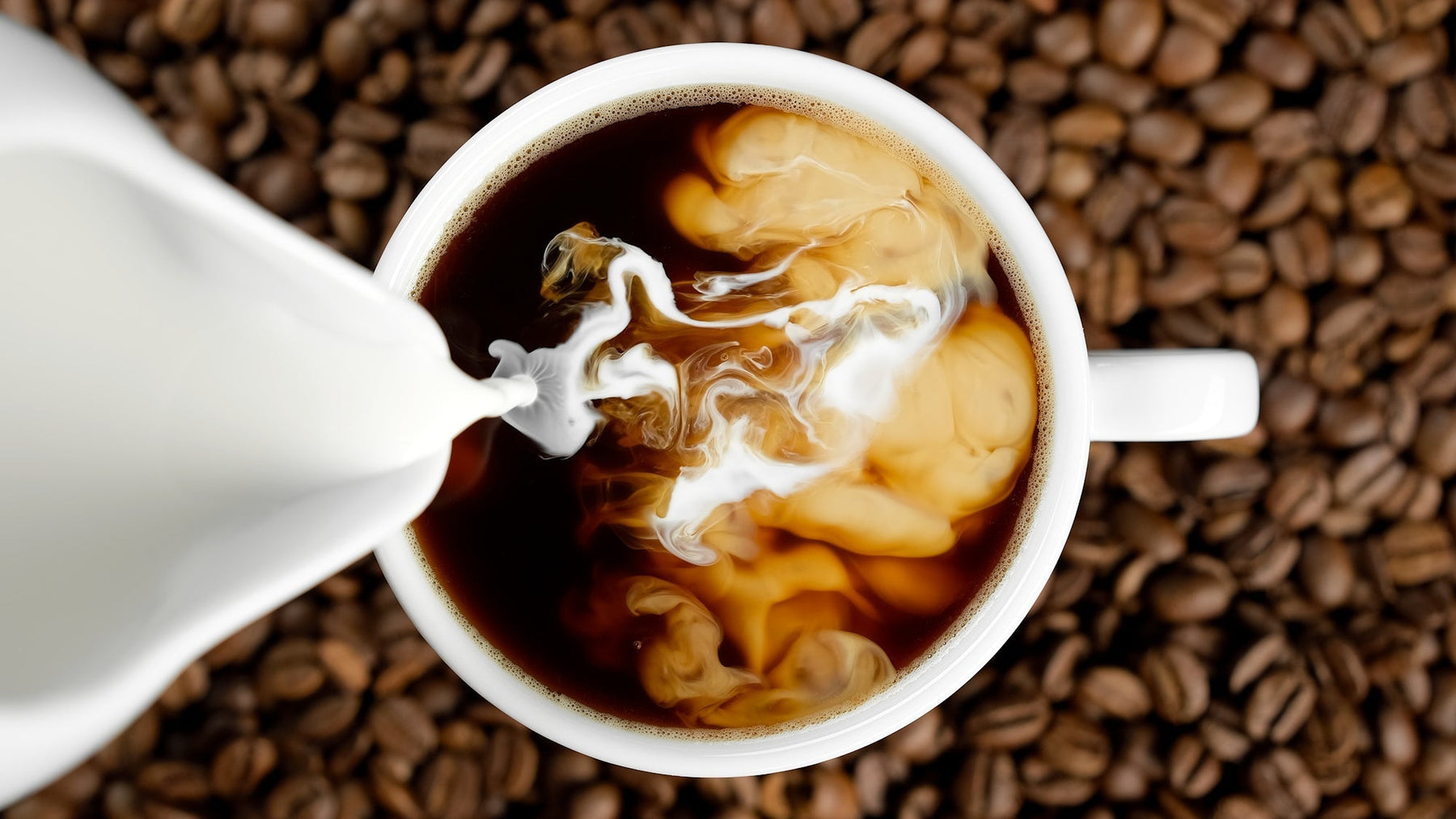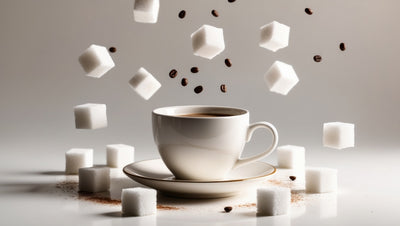
Which type of milk is best for coffee?
But have you ever given serious consideration to the milk you are adding to your coffees?
After all, coffee drinks often feature more milk than coffee!
The milk you choose will impact the taste and texture of your drinks. It could be that you have been using a milk that doesn’t complement the coffee roast you prefer or the type of drink that you enjoy.
So, which milk would be the best choice for you?
- Whole Cow’s Milk
Best for: Most traditional coffee drinks including lattes, cappuccinos, macchiatos. Works well with any coffee roast.
Why it’s good: Whole cow’s milk is loaded with protein and calcium. It boasts a balanced fat content (around 3-4%) that creates a creamy texture and rich flavour. Whole cow’s milk froths well too, making it ideal for espresso-based drinks.
Flavour profile and texture: Creamy and slightly sweet with a rich feel.
- Skimmed Milk
Best for: Those that like cow’s milk but that are looking for a lower-calorie option. Works well with most coffee drinks and coffee roasts.
Why it’s good: Skimmed milk contains protein and calcium. It froths fairly easily due to its high protein content, though it lacks the creaminess of whole milk.
Flavour profile and texture: Thin and less creamy than whole milk but has a similar flavour.
- Goats Milk
Best for: Creating coffees with a more refreshing feel. Suitable for all coffee drinks and it pairs well with medium roast coffees.
Why it’s good: More alkaline than cow’s milk, goat’s milk can counter the acidity in coffee which is great for coffee drinkers whose digestive systems struggle with that acidity. Goat’s milk is higher in both protein and calcium than cow’s milk but is also higher in calories.
Flavour profile and texture: Fresh feel and salty or grassy taste. Similar texture to cow’s milk.
- Oat Milk
Best for: Vegan or lactose-intolerant individuals or anyone seeking a plant-based option. Suitable for all coffee drinks and works well with lightly roasted coffees.
Why it’s good: Oat milk has become one of the most popular non-dairy alternatives due to its creamy texture, ability to froth well, and sweet taste that complements coffee. It is high in vitamin D but much lower in protein than cow’s milk or goat’s milk.
Flavour profile and texture: Mildly sweet with a creamy, smooth texture.
- Almond Milk
Best for: Those looking for a very low-calorie, dairy-free option and a nutty flavour. Almond milk best complements medium roast coffees. It can overwhelm the taste of the coffee if used to craft long drinks such as lattes.
Why it’s good: Almond milk is popular for its low-calorie count, but it doesn’t froth as well as other options due to its lower protein content and so isn’t ideal for cappuccinos or lattes.
Flavour profile and texture: Nutty and light with smooth texture that is less creamy than cow’s milk.
- Soya Milk
Best for: Anyone who favours a high-protein, plant-based option with a neutral flavour. It works well with dark roast coffees and is ideal for completing any coffee drinks.
Why it’s good: Soya milk froths well due to its protein content and has a smooth texture that is similar to that of dairy milk. Unfortified soya milk is high in vitamin B6, magnesium, folate, and zinc. Many soya milks are fortified with additional nutrients. Soya milks mimic oestrogen and so can combat hot flushes in menopausal women.
Flavour profile and texture: Neutral with slight soya bean undertones. Smooth feel but thinner than cow’s milk or goat’s milk.
- Coconut Milk
Best for: Those that enjoy a plant based option with pronounced flavour and sweetness. Its flavour complements lightly roasted coffees, but it can overwhelm the coffee in tall drinks such as lattes. Coconut milk is ideal for crafting mochas.
Why it’s good: Coconut milk adds a sweet, coconutty flavour to drinks, but it has a thin texture and so doesn’t froth as well. Research suggests that coconut milk can aid weight loss as it contains medium-chain triglycerides (MCTs) that stimulate energy. MCTs are also thought to supress appetite.
Flavour profile and texture: Strong coconut flavour and sweet. Smooth feel but thinner than cow’s milk or goat’s milk.
- Cream
Best for: Those who prefer creamy coffee and that don’t need to calorie count. Cream beautifully complements dark roast coffees.
Why it’s good: Cream creates the richest, smoothest coffee. You can froth cream but its tricky to work with. Cream is high in vitamin A but lower in protein than milk. It is extremely calorific due to the fat content and so is not a good choice for those with weight issues.
Flavour profile: Rich, silky, and indulgent. Sweeter taste than cow’s milk.
Don’t cry over spilt milk
If you have now discovered that you may not be using the ideal milk for your drinks, don’t worry! If you have been enjoying your coffees, then all is well. But it might be worth trying a different type of milk. Switching milks could enable you to improve the taste and texture of your drinks or ensure that you consume less calories. You will be tweaking your coffees rather than transforming them. However, sometimes small changes can be incredibly worthwhile.



Leave a comment